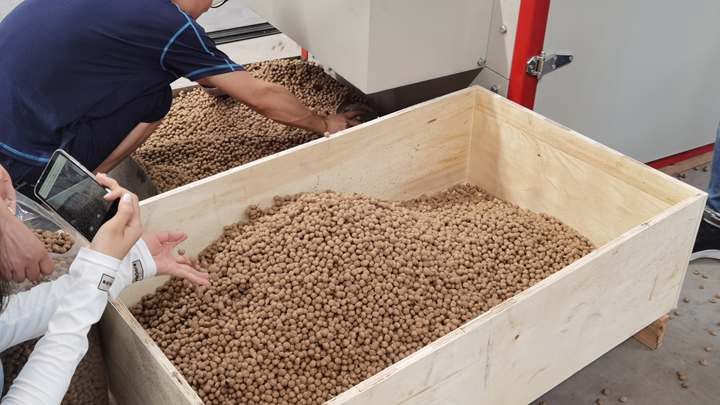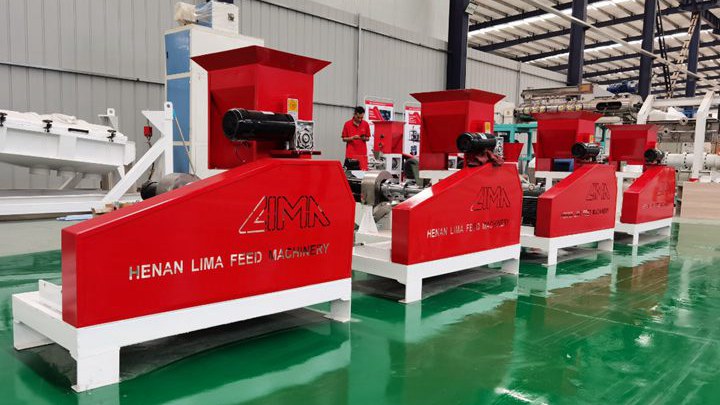.jpg)
No. Fish nutritional needs vary by species. Herbivorous fish eat a feed mixture that may contain plant proteins (e.g., soy, corn), vegetable oils, minerals, and vitamins. In the wild, carnivorous fish such as salmon eat other fish.
.jpg)
Feb 2, 2022 · SPS is the only seafood-specific processing plant standard and it is compliant with the Global Food Safety Initiative (GFSI). Why do we have it? The SPS upholds the four pillars of responsible seafood: environmental responsibility, social accountability, animal health and welfare, and food safety.
.jpg)
Dec 31, 2015 · The objective of the Food Safety Management and Related Requirements of the GAA BAP Seafood Processing Standard is to specify the food safety and quality criteria required to be in place within a seafood manufacturing or processing organization to achieve certification to the BAP Standard.
.jpg)
Shop for a fish feed plant good quality fish food processing from a Chinese wholesaler at Alibaba.com and find a wide selection of pet food processing machines that meets your needs. All categories Featured selections

Fish processing is part of the food business, and the food business is highly regulated. There is a good reason for this. Fish products that are not processed safely can make people sick or even kill them. If that happens, it can harm not only the person that got sick and the plant that processed the fish, but the entire Alaska seafood industry.
.jpg)
Feb 16, 2021 · For a refrigeration plant to work efficiently it is really necessary to have a good processing plant layout Refrigeration is the heart of fish or shrimp processing plant. It all starts with the use of ice from the time of harvesting until it reaches to final consumer kitchen.
.jpg)
In the realm of seafood processing, time and temperature are critical factors due to the delicate nature of fish and marine organisms. At Stellar, we understand that processing begins the moment the fish is harvested, necessitating meticulous cold storage and hygienic conditions throughout the entire journey to preserve product quality and prevent contamination from toxins, such as mercury.
.jpg)
3.4. Storage of fish feed Some animals (such as rodents and birds) are fond of fish feed. Physical barriers should be used to keep them away. The shop door should be kept closed at all times and the shop window should be equipped with a screen. Humidity is a crucial element that must be controlled or managed to store fish feed properly.
.jpg)
Fish processing, preparation of seafood and freshwater fish for human consumption. Modern methods of processing and preservation have encouraged the consumption of many species of fish that are popular throughout the world. Learn about the equipment and methods of fish processing.
.jpg)
Discover effective fish processing plant design and layout tips for maximizing productivity and quality. From sea to table, optimize your operations.

Jun 23, 2023 · The prices of floating fish feed in India can vary depending on factors such as feed quality, brand reputation, and regional market dynamics. As of the current market trends, floating fish feed prices range from INR 35 per Kg to INR 90 per kilogram, with variations across different fish feed brands and formulations.
.jpg)
Good Fish Company is an award winning family run fish processor and retailer. Founded by Denis Good in 1988 we operate a state of the art facility in Carrigaline where, with the help of around 100 dedicated staff, we produce award winning, world class seafood products.
.jpg)
According to statistics, 142 countries and more than 28,000 and animal feed mill plants produced 1.266 billion tons of feed in 2022, down 0.42% year-on-year because of the war and animal diseases in Africa.
.jpg)
Fish rendering is the process that converts fish waste into valuable products for animal feed. Waste products come mainly from fish processing plants. Parts of the body that can be processed: heads, particles of flesh, skin, bones, entrails, and liver. During processing, fish by-products are sterilized and dried for final moisture of about 10%.
.jpg)
Jan 3, 2023 · There are some disadvantages of protein-based conventional food analysis: (1) when using highly processed and low-protein aquatic products, the analysis may yield false/negative results; (2) the content of the same protein can show different expression levels in different tissues in aquatic animals, which affects determination using traditional methods; and (3) there are many other substances